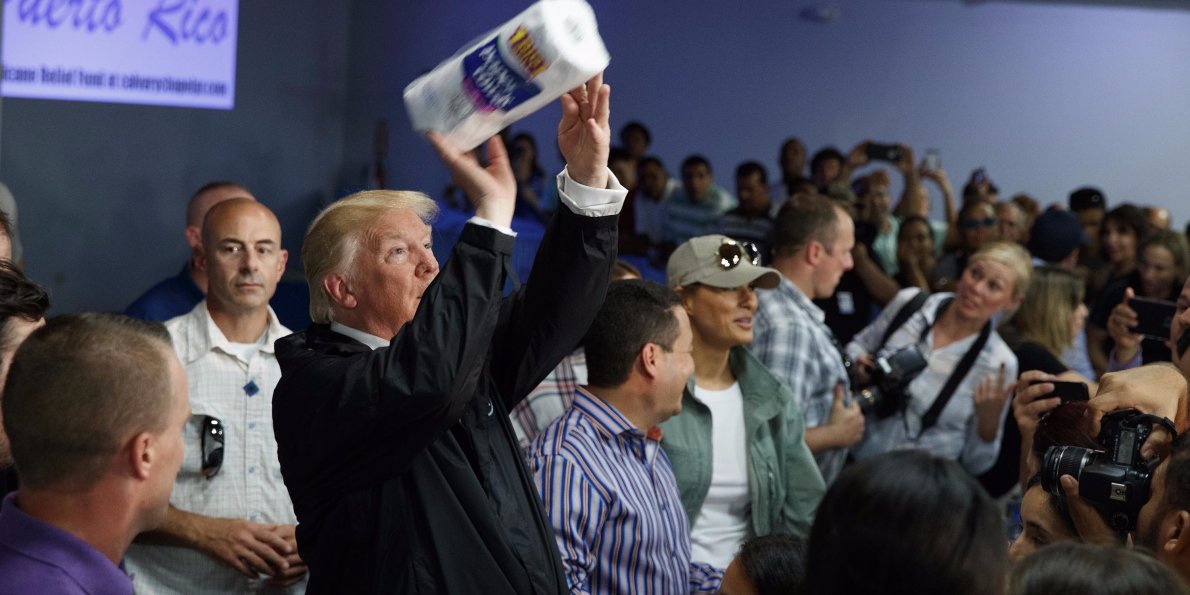
One hundred days of solitude, one hundred years of colonialism
More than three months ago Hurricane Maria tore through Puerto Rico, laying waste to the island. The response of the Trump administration has been deplorable even by the standard of neglect and incompetence established by George W. Bush’s response to Hurricane Katrina. The federal government essentially left Puerto Rico alone, abandoned, to swim or drown in Maria’s toxic tide.
By any measure, Maria was a serious disaster. While initial estimates of the death toll put it in the dozens, recent research indicates 1,000 or more died. The storm disabled nearly all the island’s infrastructure leaving almost the entire population without power and water for a prolonged period; and demolished or damaged countless buildings, including hospitals, schools, and businesses. This in turn disrupted the delivery of health care and education; significantly increased unemployment in an already-depressed economy; and made it impossible for the Puerto Rican private sector to provide the population with basic goods like food and building materials.
There are 3.4 million people in Puerto Rico who suffered through this disaster. Since 1917, everyone born on the island is a U.S. citizen. The negligent response of the U.S. government is apparent at all levels, especially the fact that after more than three months half of the population is still without electricity and hundreds of thousands are fleeing to the mainland. How come?
There is in the Trump administration’s actions following Maria something more than the incompetence and disengagement of Bush and his people after Katrina. That something is a mixture of contempt and prejudice on the part of Trump regarding Puerto Ricans, an attitude expressed in numerous ways, including a policy of let-them-fend for themselves, a demand that people knee-deep in water pull themselves up by their bootstraps.
This is boilerplate Republican right-wing ideology, but it is generally not applied in cases of natural disasters. Why in this case? I can come up with some solid hypotheses. From the start of his campaign, Trump has expressed a negative view of Latinos. It is also likely that as a New York real estate operator, he adopted the prejudice against Puerto Ricans in the city, especially among people of his class and ethnicity, specifically a man of German background who inherited much money but portrays himself as a self-made man, in his mind, a brilliant entrepreneur, in fact an odd kind of nouveaux riche, a spoiled kid who bullies his weaker playmates and will take his bat and go home if you don’t play by his rules.
Then there is the penchant by not only Trump but especially the Republican Congress to spend as little as possible to help the poor and the vulnerable. That would be many of the Puerto Rican people before Maria when the government was already bankrupt and, much more dramatically, now.
This Republican frame of mind was unwittingly exposed in crystal-clear fashion by Iowa Senator Chuck Grassley when, speaking to a colleague next to what he mistakenly thought was a closed microphone, justified abolishing the estate tax by saying that it is better that inheritance money remain with people who will invest it rather than be taxed and go to people who will spend it immediately on booze, women and movies.
Who, Senator Grassley, did you have in mind in referring to those undeserving, feckless people of dubious morals? The saddest part is that Grassley doesn’t make the top 100 of the most truculent and racist Republicans in Washington. Is it any wonder that money has not flowed, personnel has not been deployed, and a strong, competent leadership structure to lead the federal effort has not been established?
Trump’s personal performance in the wake of the calamity in Puerto Rico has been contemptible. He has blamed the victim for his administration’s woeful response, saying the Puerto Ricans “want everything done for them.” He has tried to minimize the problem and rationalize away his neglect by comparing what happened in Puerto Rico to a “real disaster” like Hurricane Harvey. His idea of aid and human connection with the victims is throwing out rolls of paper towels at them.
[Photo at top of President Trump tossing paper towels to persons in need during his visit to Puerto Rico after the devastation caused by Hurricane Maria.]

